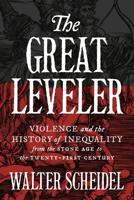Publisher's Synopsis
This comprehensive exploration of urban planning traces the evolution of cities from ancient streets to modern skylines. Beginning with the earliest settlements in Mesopotamia and the Indus Valley, the book examines how civilizations grappled with density, resource management, and social organization, laying the foundations for future urban development. It then journeys through history, highlighting the unique planning principles of ancient Egypt, Greece, and Rome, as well as the diverse urban traditions of China, Mesoamerica, and Africa. The narrative follows the development of medieval cities, Islamic urbanism, and the Renaissance's focus on ideal city design, before delving into the transformative impact of colonialism and the Industrial Revolution.
The book examines the rise of modern urban reform movements, covering pivotal figures like Haussmann and Howard, and explores the influence of Modernism and its subsequent critiques. It analyzes the challenges posed by globalization and megacities, examining contemporary responses such as New Urbanism, Smart Growth, and the increasing need for sustainable practices. The narrative culminates in an exploration of the technological city, addressing the rise of smart cities, big data, and the ethical implications of these advancements. Throughout, the book considers key themes such as the tension between planned and organic growth, the relationship between urban form and power, the role of technology and infrastructure, and the interplay between cities and their natural environments.
By tracing this evolution of urban planning, the book provides crucial perspective on contemporary urban challenges like congestion, inequality, and climate change. It explores how past societies attempted to address similar problems, offering valuable lessons from both successes and failures. This historical analysis is not simply a retrospective but a vital tool for understanding present-day issues and informing future urban planning endeavors, emphasizing the importance of equity, inclusion, and public participation in shaping the cities of tomorrow.









